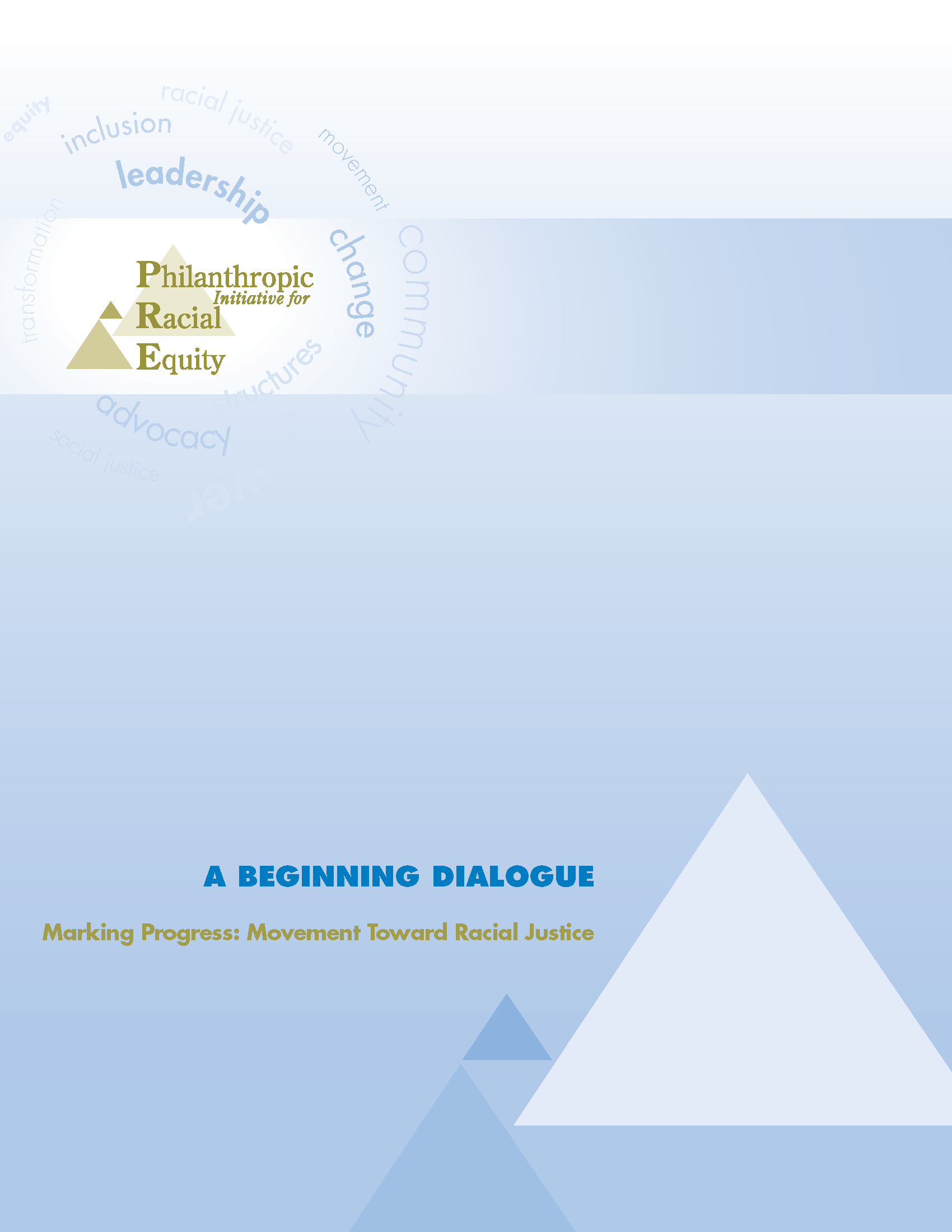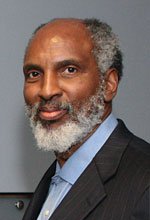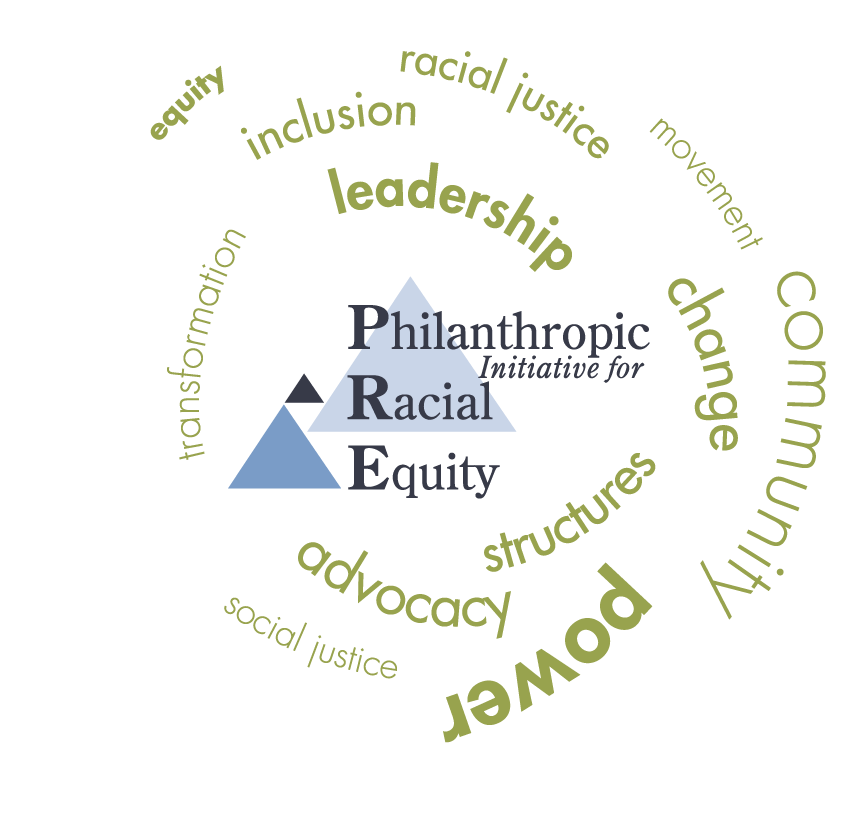Critical Issues Forum Vol. 3. Marking Progress: Movement Toward Racial Justice
Critical Issues Forum Vol. 3. Marking Progress: Movement Toward Racial Justice
Critical Issues Forum, Vol. 3, Marking Progress: Movement Toward Racial Justice is the third volume of a series aiming to deepen the discourse around important progressive racial justice issues within philanthropy. In this journal nine authors tackle the problems and prospects of evaluating racial justice work, raising some of the key issues they feel the field and its funders need to consider and explore further in order to understand the true impact of our work.

Making Progress: Movement Towards Racial Justice, is the third volume of the Critical Issues Forum series, which aims to deepen the discourse around important progressive racial justice issues within philanthropy. In this journal nine authors tackle the problems and prospects of evaluating racial justice work, raising some of the key issues they feel the field and its funders need to consider and explore further in order to understand the true impact of our work.
In August of 2009 PRE embarked on a year-long project to spark discussion that could build on best practices within evaluation and how those should be applied to efforts aimed at reducing structural racism. The effort began with discussion and debate with some key advocates, activists and evaluators working on these issues at national and local levels, and was followed by similar discussions of funders, and then among additional local activists.
This publication shares the views of several of these thought leaders, as they synthesize the ways evaluation can be most effective when measuring the progress being made towards achieving racial justice.
 Quinn Delaney is founder and President of Akonadi Foundation, an Oakland, California based foundation working to support and nurture a racial justice movement to put an end to the structural racism that lies at the heart of social inequity in the United States.
Quinn Delaney is founder and President of Akonadi Foundation, an Oakland, California based foundation working to support and nurture a racial justice movement to put an end to the structural racism that lies at the heart of social inequity in the United States.
Working in the area of racial justice requires us to ask big questions: How do we transform our society and our institutions? How do we address interlocking systems of racial inequities? How do we simultaneously address institutional racism and interpersonal/internal racism? How does transformational change occur?
Lori Villarosa is the executive director and founder of the Philanthropic Initiative for Racial Equity (PRE), a multiyear project intended to increase the amount and effectiveness of resources aimed at combating institutional and structural racism. Lori has worked in philanthropy for more than 18 years; prior to launching PRE in 2003, she was a program officer with the C. S. Mott Foundation, where she developed and managed its portfolio on race relations and institutional racism within the U.S.
So much has been presented in foundation circles on project evaluation, it is difficult to imagine what more needs to be said. Evaluation approaches aimed at measuring social impacts have evolved in many progressive ways in the past decade or more, with significant work on participatory evaluation, cultural competency, efforts to measure advocacy and related social justice work or communications strategies. But it seems that of the hundreds of tools and reports on evaluation approaches – even those directly aimed at many of the components of their work such as advocacy or communications – many have not resonated with or even reached racial justice practitioners and advocates. Full Text
Maya Wiley is the Executive Director of the Center for Social Inclusion, a policy and advocacy organization which works to transform structural inequity and exclusion into structural inclusion. A civil rights attorney and policy advocate since 1989, Ms. Wiley has worked for the ACLU, NAACP Legal Defense Fund and the Open Society Institute. She has contributed to Growing Smarter: Achieving Livable Communities, Environmental Justice and Regional Equity, R. Bullard, ed. The MIT Press (2007).
What does it mean to measure the transformation of race? Funders and grantees are increasingly asked to predetermine measurable impacts and quantify them. We are asked to develop strategies, relationships, and outcomes in a linear equation. We assume, we do and we report. But the structural racism lens, a form of racialized “systems thinking,” draws us to multidimensional, complex institutional and social relationships, policies, and practices. It’s more of a constellation than an equation. It’s the stars, not algebra.
 Professor john powell is the executive director of the Kirwan Institute for the Study of Race and Ethnicity at the Ohio State University and Williams Chair in Civil Rights & Civil Liberties at the Moritz College of Law. An internationally recognized authority in the areas of civil rights, civil liberties and issues relating to race, ethnicity, poverty, and the law, he was previously national legal director of the American Civil Liberties Union, founder and director of the Institute on Race and Poverty at the University of Minnesota, and a cofounder of the Poverty & Race Research Action Council. He is a member of the PRE Advisory Board.
Professor john powell is the executive director of the Kirwan Institute for the Study of Race and Ethnicity at the Ohio State University and Williams Chair in Civil Rights & Civil Liberties at the Moritz College of Law. An internationally recognized authority in the areas of civil rights, civil liberties and issues relating to race, ethnicity, poverty, and the law, he was previously national legal director of the American Civil Liberties Union, founder and director of the Institute on Race and Poverty at the University of Minnesota, and a cofounder of the Poverty & Race Research Action Council. He is a member of the PRE Advisory Board.
As racial justice advocates and theorists, we need an evaluation approach that acknowledges what we know from a history of inadequate or failed policy interventions. We know that what works on a micro level may not be able to be scaled up; what appears promising in the short term may have no impact in the long term, what helps in the short term may in fact harm in the long term, and even policies that are far removed from the traditional concerns of racial justice advocates can either ameliorate or exacerbate racial disparities.
 Rinku Sen, President and Executive Director of the Applied Research Center (ARC) and Publisher of ColorLines Magazine is a leading figure in the racial justice movement. Rinku has written extensively about immigration, community organizing and women’s lives for a wide variety of publications including The Huffington Post, Jack and Jill Politics, The San Francisco Chronicle, and Forbes.com. Her latest book, The Accidental American: Immigration and Citizenship in the Age of Globalization (Berrett-Koehler) won the Nautilus Book Award Silver Medal.
Rinku Sen, President and Executive Director of the Applied Research Center (ARC) and Publisher of ColorLines Magazine is a leading figure in the racial justice movement. Rinku has written extensively about immigration, community organizing and women’s lives for a wide variety of publications including The Huffington Post, Jack and Jill Politics, The San Francisco Chronicle, and Forbes.com. Her latest book, The Accidental American: Immigration and Citizenship in the Age of Globalization (Berrett-Koehler) won the Nautilus Book Award Silver Medal.
Racial equity requires the transformation of all aspects of our society, from popular thinking to legislation. Yet realpolitik involves transactions – interim steps – that take us only partly there. One way to assess whether these steps are taking us in the right direction is to constantly measure them against transformational goals. By examining the impact of such transactional advances on public discourse, constituency building and the implementation of policies, advocates can have a better sense of whether their work is moving communities toward meaningful racial justice.
 PRE: What do you think are meaningful indicators for measuring progress in addressing structural racism?
PRE: What do you think are meaningful indicators for measuring progress in addressing structural racism?
KK: I think there are some new tools that cities, governments and organizations are pushing to help us get there – racial equity impact statements, racial equity report cards. There are ways of evaluating the end impact of policy through the racial disparity lens and ensuring that you have race-neutral outcomes at the forefront of policy rather than 20 years down the line. Some of those tools have gained traction in ways that are significant.
 Cathi Tactaquin, executive director of the Oakland, California-based National Network for Immigrant and Refugee Rights
PRE: How do you incorporate a structural racism analysis into your work?
We try to connect our work to a deeper and broader analysis of structural racism, and in the education work and training that we do, we try to utilize a racial lens throughout that work. What we hope will be an outcome of that investment is an awareness of structural racism for our main constituency of immigrant organizations and that people will begin to apply that in their organizing, analysis work and their own educational work. We recognize that addressing structural racism includes concerns of immigrant communities; they’re not two separate issues
Full Text
Cathi Tactaquin, executive director of the Oakland, California-based National Network for Immigrant and Refugee Rights
PRE: How do you incorporate a structural racism analysis into your work?
We try to connect our work to a deeper and broader analysis of structural racism, and in the education work and training that we do, we try to utilize a racial lens throughout that work. What we hope will be an outcome of that investment is an awareness of structural racism for our main constituency of immigrant organizations and that people will begin to apply that in their organizing, analysis work and their own educational work. We recognize that addressing structural racism includes concerns of immigrant communities; they’re not two separate issues
Full Text PRE: How are you able to measure and assess whether your work is having an impact, especially in view of the many barriers our communities face?
PRE: How are you able to measure and assess whether your work is having an impact, especially in view of the many barriers our communities face?
BJ: First of all, I think these are long-range strategies. What’s needed in the long term includes questions such as: Has there been a change in the public discourse and debate? Is the issue of targeted resourcing being discussed more in the media? Are people taking up those issues? Are policy demands being brought forth on a local level that impact the community in a positive way?
 Soya Jung is a consultant for non profits and public interest projects, providing project management and organizational development services to local and national organizations. From 2001 to 2006 she was the Grants and Program Director for the Social Justice Fund NW, and played a key role in institutionalizing the foundation’s commitment to racial equity. Her field experience is in immigrant rights and grassroots journalism.
Soya Jung is a consultant for non profits and public interest projects, providing project management and organizational development services to local and national organizations. From 2001 to 2006 she was the Grants and Program Director for the Social Justice Fund NW, and played a key role in institutionalizing the foundation’s commitment to racial equity. Her field experience is in immigrant rights and grassroots journalism.
Conversations with several foundation program officers whose institutions are designing racial justice evaluation methods show significant challenges in developing these methods, but also reveal commitment and potential for moving forward. Through these discussions, three critical components in evaluating racial justice efforts surfaced: shared racial justice language and definitions, a clear theory of change based on movementbuilding principles and a way to capture and disseminate the stories of racial justice.
 Sally Leiderman is President of the non-profit Center for Assessment and Policy Development. She is an experienced evaluator of efforts aimed at reducing institutional racism, supporting racial equity or building more inclusive communities, including Project Change; the Bridging Initiative of the National Capitol Region; Communities Creating Racial Equity; Communities for All Ages; the Americans for Indian Opportunity Ambassadors Program and others. Ms. Leiderman co-created www.racialequitytools.org and www.evaluationtoolsforracialequity.org.
Sally Leiderman is President of the non-profit Center for Assessment and Policy Development. She is an experienced evaluator of efforts aimed at reducing institutional racism, supporting racial equity or building more inclusive communities, including Project Change; the Bridging Initiative of the National Capitol Region; Communities Creating Racial Equity; Communities for All Ages; the Americans for Indian Opportunity Ambassadors Program and others. Ms. Leiderman co-created www.racialequitytools.org and www.evaluationtoolsforracialequity.org.
People engaged in racial justice work face considerable pressure to provide evidence that their organization’s particular approach makes a tangible difference in people’s lives. The pressure comes from their own sense of urgency, from their constituents and from funders. Many people who fund this work are under similar pressure, sharing that sense of urgency, having to account for their decisions, and, like practitioners, wanting to structure future decisions based on evidence that the work is creating improvements. Evaluation sits right at the nexus of these similar and sometimes competing pressures.
Full Text Michelle Fine, Distinguished Professor of Social Psychology, Women’s Studies and Urban Education at the Graduate Center, CUNY has taught at CUNY since 1992 and is a founding member of the Participatory Action Research Collective. Michelle’s research has been organized through participatory action research and focuses how youth think about and contest injustice in schools, communities and prisons.
Michelle Fine, Distinguished Professor of Social Psychology, Women’s Studies and Urban Education at the Graduate Center, CUNY has taught at CUNY since 1992 and is a founding member of the Participatory Action Research Collective. Michelle’s research has been organized through participatory action research and focuses how youth think about and contest injustice in schools, communities and prisons.
Structural racism projects are bold, ambitious initiatives dedicated to documenting and transforming a thick overgrowth of policies, practices, traditions and ideologies that have justified and naturalized racialized injustices. Whether implemented in government, schools, prisons, worksites or communities, such interventions are typically resisted or contained; domesticated to “fit” into existing arrangements. In the language of Rinku Sen, executive director of the Applied Research Center, most of these projects set out to be transformational and end up transactional (see page X). Vibrant political visions too often shrink to technical solutions. This short essay advances critical participatory evaluation as an essential tool to hold institutions accountable for racial justice and research validity.
 Maggie Potapchuk is the founder of MP Associates, dedicated to building the capacity of organizations and communities to effectively address racism and privilege issues for building a just and inclusive society. She cocreated www.racialequitytools.org and www.evaluationtoolsforracialequity.org. Her research includes Community Change Processes and Progress in Addressing Racial Inequities, Flipping The Script: White Privilege and Community Building, and Cultivating Interdependence: A Guide for Race Relations and Racial Justice Organizations.
Maggie Potapchuk is the founder of MP Associates, dedicated to building the capacity of organizations and communities to effectively address racism and privilege issues for building a just and inclusive society. She cocreated www.racialequitytools.org and www.evaluationtoolsforracialequity.org. Her research includes Community Change Processes and Progress in Addressing Racial Inequities, Flipping The Script: White Privilege and Community Building, and Cultivating Interdependence: A Guide for Race Relations and Racial Justice Organizations.
We know that efforts to eradicate structural racism are consistently met with resistance, so that advances in one area (such as education) may result in backward movement in another (such as housing). In order to more effectively respond to the “repositioning of the color line rather than its erasure,” collective action that crosses issue areas and communities may be far more effective than works of disparate organizations. As a practitioner, advocate and long-time consumer of evaluation, I’ve come to believe not only in the value of communities of practice (CoP) – groups of people dedicated to shared learning and practice – for action against structural racism, but also in their potential for fostering meaningful evaluation of racial justice efforts.
This section lists a few of the many publications, journal articles and websites that address the core issues built upon in this volume, including structural racism and systems thinking, culturally competent and participatory evaluation, and/or evaluations that address issues of advocacy, social justice, diversity or equity. As noted in this volume, there are few, if any, current resources that specifically address how to evaluate racial justice efforts from a structural perspective, but many existing tools could be built upon or adapted.

